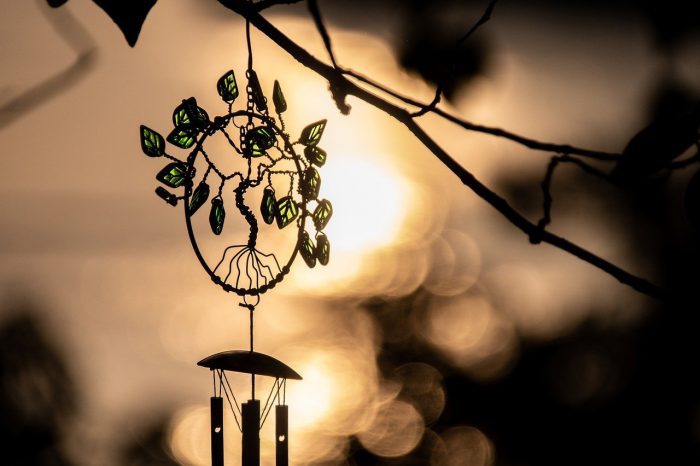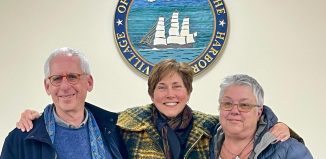D. None of the Above: Sharing a laugh with my long-dead father
By Daniel Dunaief

I was in between that state when I’m focused on how tired I am at the gym and when the endorphins kick in, enabling my body to push harder and for longer in the interests of physical fitness and mental health.
When my cell phone rang, I wasn’t sure whether to pick it up. I’ve been getting numerous annoying robocalls from pseudo-people who want to sell me something I don’t want or need. When I ask them to take my name off their lists, they hang up and someone else from the same organization calls me back the next day.
Unless I recognize the number or am expecting an important call, I tend to let voicemail pick up while I disconnect from everything but the rhythm of checking the number of calories I’ve burned and the distance I’ve traveled during each five minute segment on the elliptical machine.
This time, however, the name looked vaguely familiar, so I stopped moving, took out the airpods that don’t work too well and picked up the phone.
“Hi, this is Dan,” I said, trying to control my breathing.
“Who is this?” the person asked.
“Dan, why, who is this?” I thought, as I considered disconnecting and returning to my routine.
“I have a number that my wife wrote down on my desk and I wanted to know who this was,” he said.
That’s when it hit me. The name was familiar because I had written a story a few weeks ago and had reached out to the couple for a comment.
He understood my explanation and asked if I were related to several other Dunaiefs he knew.
“Yup, that’s my mother,” I said proudly, awaiting words of appreciation and praise for what she’s done since she started the newspapers over 47 years ago and become a visible presence in the community.
“And Ivan?” he asked, “That’s your father?”
“Indeed,” I said.
“Well, I knew him many years ago,” he offered. “We worked together.”
I nodded and looked around the room to see if anyone were waiting to use the elliptical machine. Fortunately, no one was hovering.
“So, how is he?” he asked.
“Excuse me?” I replied, not sure I heard him correctly.
“How is Ivan doing?”
I hadn’t been asked this question in decades.
“He died in 1987,” I said, flatly.
“Oh,” he said, “1987?”
“Yes,” I said.
“Well, we all have to go sometime,” he offered. “Some sooner than others, I suppose.”
After we ended the call, I resumed my exercise. That seemed like a surprisingly flippant thing to say. The older, current version of me was annoyed, while the younger version felt vulnerable.
Once I built up a solid sweat, a broad smile filled my face, leading at least one person to ponder why I looked unusually pleased during physical exertion.
While I knew the man was processing the not-so-new news, I also decided that the person who would have taken particular delight in this slightly absurd conversation was my father.
With my legs pumping away, I shared a laugh with my father, who could make me smile no matter how frustrated or annoyed I was as a teenager.
Over time, I have enjoyed any number of opportunities to connect with people I’ve had the privilege of knowing who have died, sometimes through dreams or by watching, hearing or experiencing something I know they’d appreciate.
Recently, after my mother-in-law died, my wife received a set of wind chimes with her mother’s name inscribed on them. Before we placed the chimes, we rarely had much wind. Now, amid a steady flow of unusual breezes that bring pleasant sounds to our backyard, my wife and I smile at each other.
If we look for it, we can take comfort in the things that help us feel connected to those we’ve lost.







